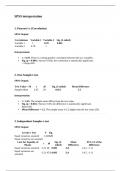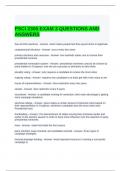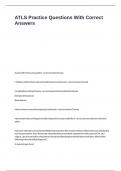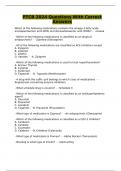Lecture 1 – Introduction & the Nonmarket Environment
Part I – Introduction
Political economy asks questions of political decision-making and analyses them through the
lenses of economic tools.
Applying economic methods to political questions.
Economists use quantitative data, rational approach. They assume that people are
rational and have identified goals. People make rational decisions to achieve these goals
utility maximization,
Political economy assumes that politicians are rational. Their goal is re-election, for
which they need votes (voting preferences) and they want to achieve policy goals (want
their views to be adopted).
Political decision-making is also important for firms because governments have the
ability to interfere with a firm’s activities.
The environment of business
The environment of business consists of (1) a market component and (2) a nonmarket
component:
The market component includes those interactions between firms, suppliers, and
customers that are governed by markets and contracts.
The nonmarket component is composed of the social, political, and legal
arrangements that structure interactions outside of, but in conjunction with, markets and
contracts.
, Effective management in the market and nonmarket environment is necessary for superior
performance.
Part II – Analysing the nonmarket environment
Broader picture
Differences between the market & nonmarket environment
Market environment Nonmarket environment
Currency Money Votes
Decision rule Unanimity rule Majority rule
Collusion Illegal Legal
Firms can be market rivals and nonmarket allies at the same
time (cost effect vs strategic effect)
Benefits Private Public (free-rider problem)
Participants Enfranchised actors Market participants,
government officials, interest
groups, activists, media, and
the public
Analysis of the nonmarket environment: The Four I’s
I. Issues: basic unit of analysis and the focus of nonmarket action.
II. Interests: include the individuals and groups with preferences about, or a stake in, the
issue.
III. Institutions: rules of the game in society that shape actors’ interactions. These
institutions provide arenas in which interests seek to influence outcomes on issues.
Part I – Introduction
Political economy asks questions of political decision-making and analyses them through the
lenses of economic tools.
Applying economic methods to political questions.
Economists use quantitative data, rational approach. They assume that people are
rational and have identified goals. People make rational decisions to achieve these goals
utility maximization,
Political economy assumes that politicians are rational. Their goal is re-election, for
which they need votes (voting preferences) and they want to achieve policy goals (want
their views to be adopted).
Political decision-making is also important for firms because governments have the
ability to interfere with a firm’s activities.
The environment of business
The environment of business consists of (1) a market component and (2) a nonmarket
component:
The market component includes those interactions between firms, suppliers, and
customers that are governed by markets and contracts.
The nonmarket component is composed of the social, political, and legal
arrangements that structure interactions outside of, but in conjunction with, markets and
contracts.
, Effective management in the market and nonmarket environment is necessary for superior
performance.
Part II – Analysing the nonmarket environment
Broader picture
Differences between the market & nonmarket environment
Market environment Nonmarket environment
Currency Money Votes
Decision rule Unanimity rule Majority rule
Collusion Illegal Legal
Firms can be market rivals and nonmarket allies at the same
time (cost effect vs strategic effect)
Benefits Private Public (free-rider problem)
Participants Enfranchised actors Market participants,
government officials, interest
groups, activists, media, and
the public
Analysis of the nonmarket environment: The Four I’s
I. Issues: basic unit of analysis and the focus of nonmarket action.
II. Interests: include the individuals and groups with preferences about, or a stake in, the
issue.
III. Institutions: rules of the game in society that shape actors’ interactions. These
institutions provide arenas in which interests seek to influence outcomes on issues.










